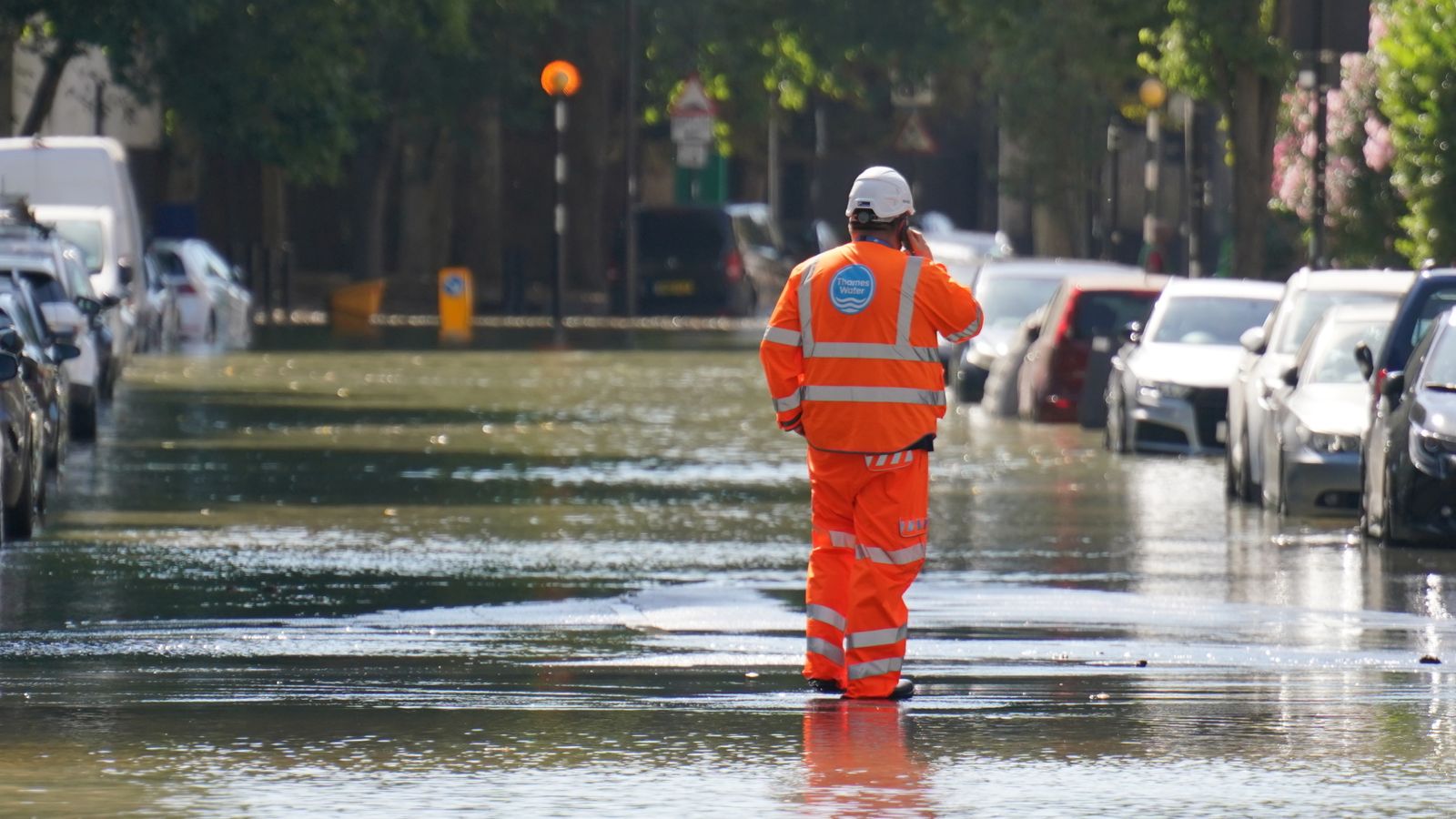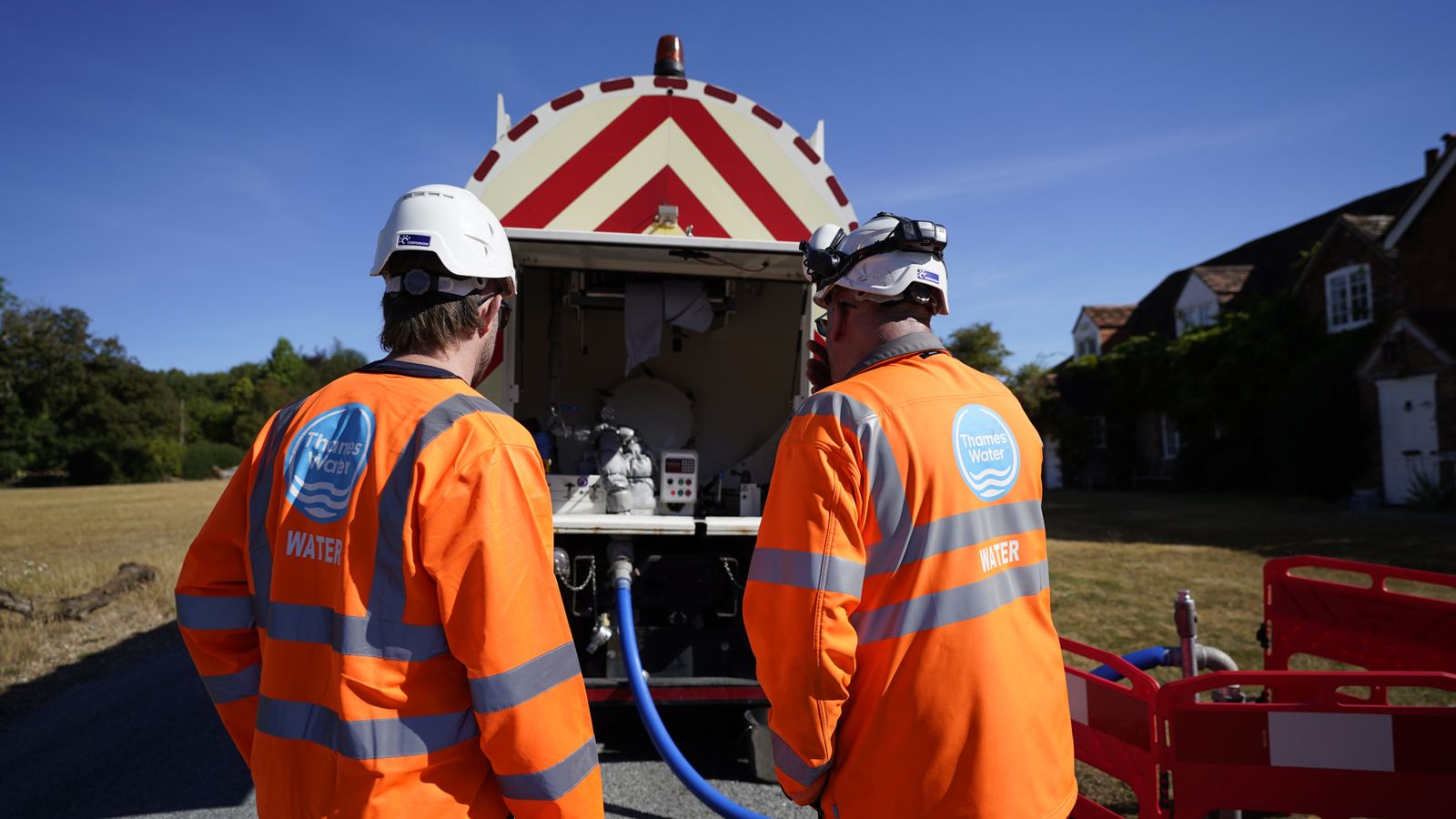A boss at troubled Thames Water has warned that bills will have to go up across the country if the industry is to meet its investment challenges despite anger over their business models .
Interim joint chief executive Cathryn Ross told a committee of MPs that while Thames was currently prevented from hiking bills under the industry’s existing price control period, Britain’s biggest supplier would more from customers to meet its performance obligations from 2025.
Those included replacing Victorian era pipe networks and building for climate change threats.
She described an “unfortunate truth” that households would have to foot bills for infrastructure improvements amid a backlash from the politicians over sewage discharges and its £14bn debt pile.
Ms Ross, and the water regulator Ofwat, insisted under questioning that no companies are allowed to charge households more to help service their debt obligations.
Be the first to get Breaking News
Install the Sky News app for free
They have been made more difficult in recent times by rising interest rates, energy and chemicals bills.
Discussions over bill levels will begin next year ahead of the new pricing period and can rise by an inflation-linked level subject to regulatory approval.
Sky News revealed last month that the government was drawing up contingency plans in the event Thames Water collapsed as it rushed to agree a new turnaround plan and secure more money from shareholders.
Iain Coucher, who chairs Ofwat, backed assertions by the company earlier this week that it had raised enough to ensure that no temporary nationalisation would be needed in the short term.
Please use Chrome browser for a more accessible video player
“We don’t think it’s likely at the moment,” he said.
“At this point in time, we’re confident the shareholders will inject some cash but the problems at Thames are deep rooted… the problems at Thames are a function of cost overruns and poor performance and they need to fix that as quickly as possible,” he insisted.
Ms Ross admitted that Thames was currently prevented from imposing the charges it would have liked to due to the fact it was under an Ofwat penalty over its past performance.
Thames has paid no dividends since 2017.
Please use Chrome browser for a more accessible video player
New chairman Sir Adrian Montague, who called for a partnership with the regulator and pledged improved communication with customers, said he was “surprised” by the sudden departure of former CEO Sarah Bentley last month, suggesting the pressure relating to the turnaround effort had proved too great,
“I think she had got to the point perhaps of feeling that the burdens of office were considerable and it was an entirely personal decision, with which I think we had no involvement.”
Alastair Cochran, the other interim joint chief executive of Thames, told the Environment, Food and Rural Affairs Committee: “I was brought in with a whole new executive team to turn around this business.
“This business matters – it serves 15 million customers. Our job collectively is turn this business around.
“We know performance both operationally and financially hasn’t been where it needs to be. We’ve been very transparent about that.
“We are very focused on turning this business around, making it sure it is financially resilient and delivers a better service for customers, and improves both its operational and environmental performance.”








